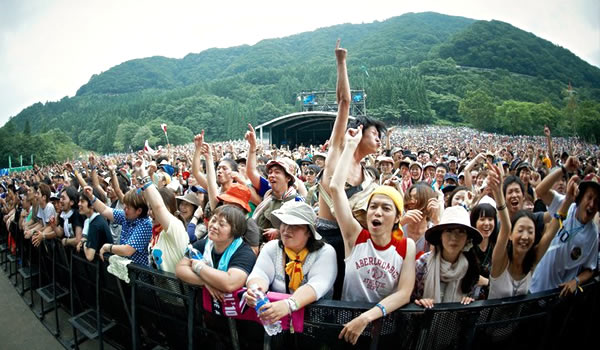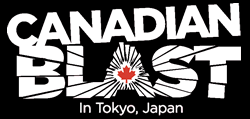
According to IFPI, Japan ranks first in physical revenues, third in digital revenues, fourth in performance rights revenues and third in synchronization rights revenues (2014).
Although CD sales have declined over the years, live performances continue to grow setting records each year. The All Japan Concert & Live Entertainment Promoters Conference reports that about 47.5 million people went to over 29,000 concerts in 2015. (www.acpc.or.jp)
The majority of concerts are in the rock/pop category, with performing arts (classical, traditional, theatre and dance) coming in a strong second.
Of the foreign artists performing in Japan, Korean artists make up the largest group, followed by North and Central Americans, and then Europeans. In total, performances by foreign artists in 2015 represented about 7.5% of the entire live market in Japan.
Cultural and language differences make it challenging for international artists to break into the Japanese market. For example, Japan has a relatively small number of radio stations and a smaller number of radio listeners when compared to other regions.
But it isn’t impossible – since 2010, established Canadian acts that have performed in Japan, include: Deadmau5, Magic!, Arcade Fire, Carly Rae Jepsen, Hunter Valentine, Nelly Furtado, Avril Lavigne, Death from Above 1979, Sum 41, K’Naan and Molly Johnson.
Canadians who are travelling to Japan on business trips that don’t include remuneration may apply for a 90-day visa. VISA / Residing in Japan
Canadians who are being paid for performing in Japan will need to apply for a Working Visa: Entertainer. These are available for specified time periods, including 3 months and 15 days. You will need to submit a passport, a visa application form, a photograph, and a Certificate of Eligibility (secured by the promoter in Japan). Working visa: Entertainer
For details please refer to a Japanese embassy or consulate in your area.
In general, a withholding tax on revenue earned by a non-resident while performing in Japan, is paid by the Japanese promoter directly to the tax authorities.
For more information on two of Japan’s major urban regions, please see the Key Regions in the Japan descriptions below.
For more information on live music festivals and conventions, please see the Japan’s Major Festivals tab below.

The Canada Council’s Audience Development Office has created a guideline for performing arts organizations called ON THE ROAD – TOURING HANDBOOK which has a chapter on Japan.
The UK organization Jisc Digital Media has prepared a resource website for indie artists, bands, managers, record labels under the name Japan Music Marketing: Selling and Promoting Your Music in Japan.







